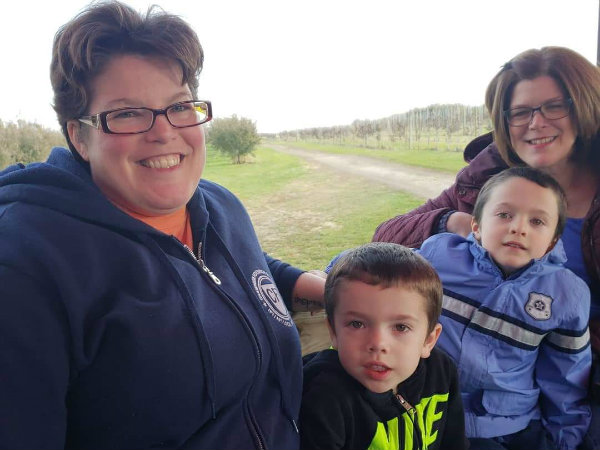Common questions facing someone living with diabetes are “Can I have sugar?” and “What can I eat?” Today living with diabetes is far more than monitoring what you eat. Technology plays a key role.
“I love cheeseburgers and pizza. I eat what I want, but I just know certain foods affect my body, and I make adjustments,” said Champaign’s Clair Irwin, who lives with Type 1 diabetes, a chronic condition where the body doesn’t produce insulin.
Diagnosed at age 11, she’s used several strategies to manage her condition, including timed insulin injections several times a day, an insulin pump and a continuous glucose monitor (CGM).
“I realized having a support system makes a great difference so you can compare notes,” she said, adding she values the group’s resources and connections.
Constant monitoring causes mixed emotions for many and checking blood sugar feels like finding out if you’re getting a good a or bad grade.
 Diabetes Support Group 2.0 gives young adults 18 to 40 living with diabetes an avenue to share ideas and information. Meetings are free and open to anyone, regardless of where they receive care.
Diabetes Support Group 2.0 gives young adults 18 to 40 living with diabetes an avenue to share ideas and information. Meetings are free and open to anyone, regardless of where they receive care.
“You’re figuring out life – and how to manage this disease,” said Kara Miller, 38. When her career brought her to Champaign, she sought support from others living with and actively addressing diabetes.
“I’m so thankful to have a community,” Miller said. “Like so many others, I struggle emotionally, mentally and physically.”
The American Diabetes Association says people with Type 1 diabetes are at a heightened risk for mental health issues, including diabetes distress, depression, anxiety and eating disorders.
“Your mental health affects how you think and feel and make choices. Having a positive mental health outlook can make it easier to stick to your diabetes care plan,” Owaise Mansuir, MD, endocrinologist, said. “Support groups provide an outlet to discuss you feelings and gain tips on managing your health – physically and mentally.”
Angela Larson, MSN, a diabetes nurse educator, works to fight misconceptions about people living with diabetes.
“They run, do sports, go swimming. Technology can support those in very active stages of life,” Larson said. “Technology makes diabetes work for them rather than against.”
 Carle’s care and technological advances help Irwin and Miller control Type 1 diabetes. The CGM was a game changer for Irwin. Miller says her care was the life changer.
Carle’s care and technological advances help Irwin and Miller control Type 1 diabetes. The CGM was a game changer for Irwin. Miller says her care was the life changer.
“So many doctors told me I’d never have a family.” The proud mom to 5-year-old Zander and 4-year-old Alastair said being pregnant is just one of many things she can do thanks to supportive care.
“I don’t receive treatment in a box. It’s customized,” Miller said. “Dr. Mansuri listens and respects my decisions.”
Both agree living with diabetes affects them, but they can do what others do, they just have to prepare.
Irwin explains diabetes in this way: “We’re all flying our own planes. Mine just doesn’t have auto-pilot.”
Categories: Staying Healthy, Community
Tags: Carle, support, stroke, diabetes, mental health, Mansuri, heart and vascular
